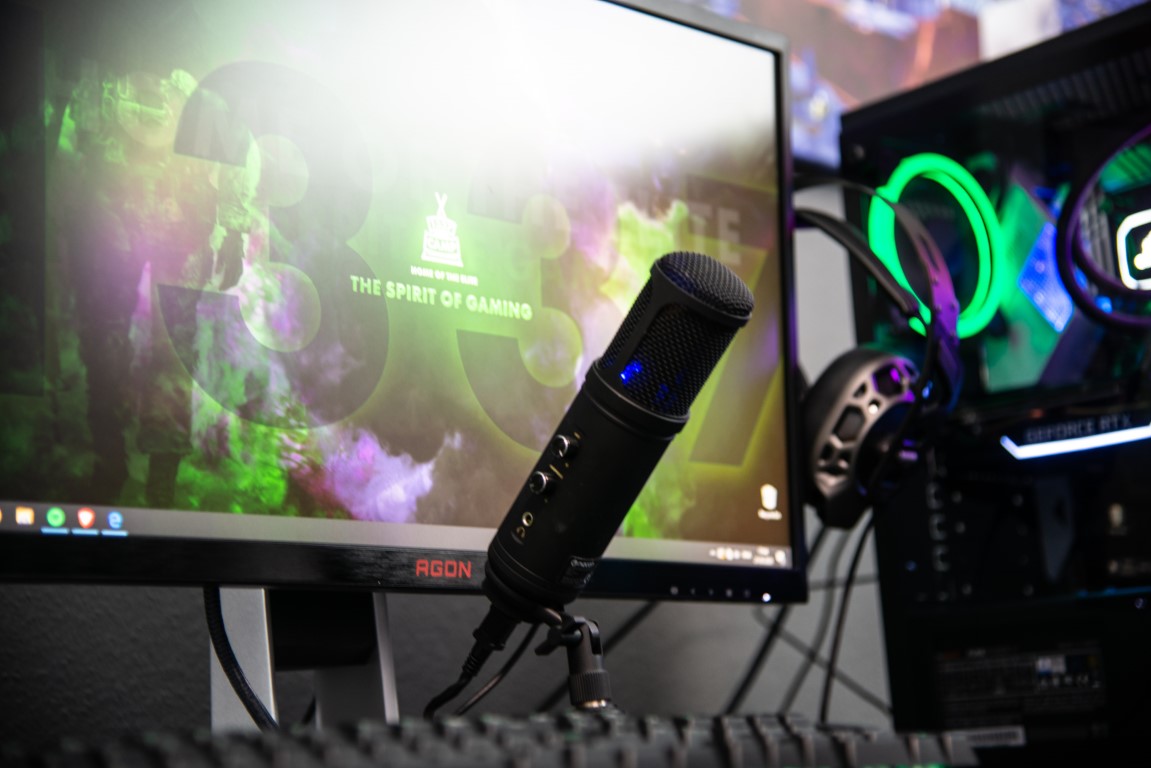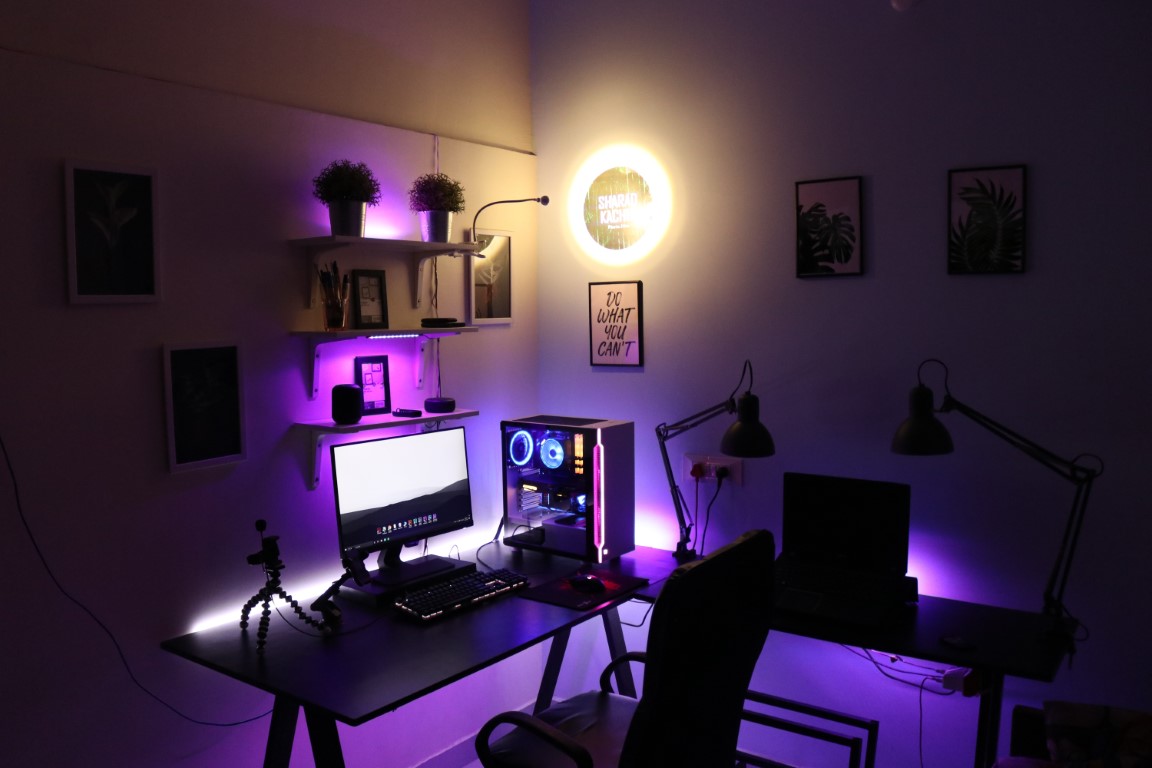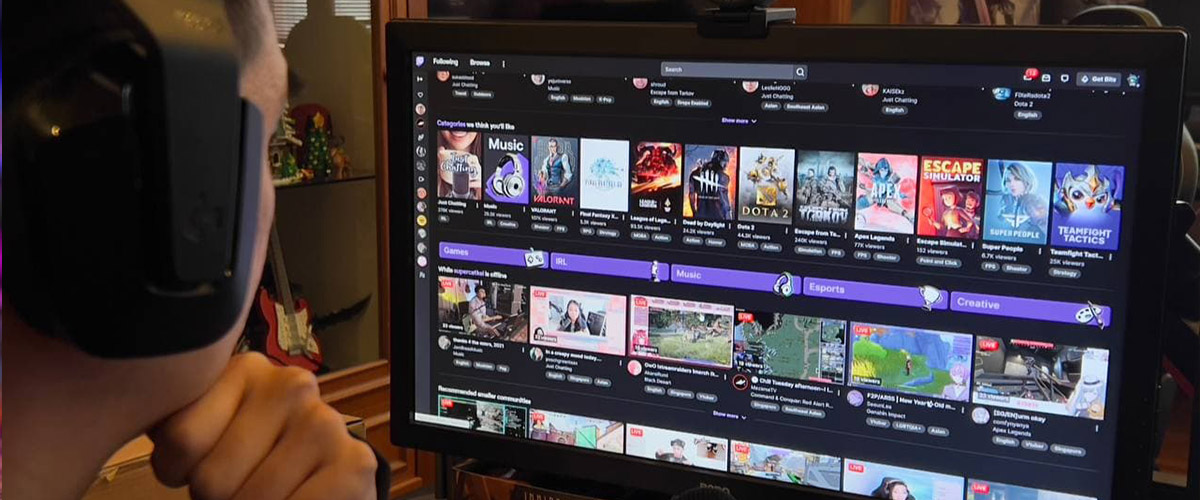- Shares
- 106
You heard of it, read about it, and probably watched several live streams, and probably on Amazon’s Twitch platform, and realised that streaming video games is a viable option for making money, and getting sponsors.

But not everyone who starts, succeeds, warns Lewis Mitchell, Content Director for Twitch APAC.
“You have to have the passion for it. Because without that, you’re not going to go through the next steps and learn and understand the skill sets you need.”
As the leading platform invested in boosting live streaming for video games, Twitch has built a pool of real-time content big enough to rival YouTube, with millions of hungry viewers globally. After all, if sports fans can sit on a couch to watch a football, baseball or basketball match, why can’t gamers watch other gamers play?
Formerly known as Justin.tv, the platform was acquired by Amazon in 2014. In the past two years, fueled by the pandemic, the platform has gone from strength to strength. While it does have its fair share of controversies, Twitch goes further than just gaming these days which has led to its boom. If there’s an interest you have in mind, there’s probably a Twitch streamer and community partaking in it.
And it is slowly setting its sights on Southeast Asia to do the same. For some individuals, being an influencer, Twitch streamer, or YouTuber, seems to be the dream job for many but there’s a good degree of hard work and a fair amount of luck as well. Playing games and chatting with folks online and eking out a livelihood sounds pretty much like a good gig considering the low entry point.

And while Twitch can sit back and open up channels for everyone with an interest, Mitchell is clear that quality matters more than quantity. After all, many folks only see the final product and not the behind-the-scenes or lead up to that success.
However, if one is in it for Twitch purely for the monetary benefit and seeking immediate returns, he has some sobering insights to share.
“It has to start as a hobby, it has to start as a passion and something you want to just give it a go. And like anything, it’s another entertainment sector. So just like a musician, you wouldn’t turn around to a musician and say, ‘Oh you’ve been playing guitar for a week, alright, quit your job and become a musician,’” elaborated Mitchell.
While we tend to celebrate the successes, there are many more individuals on Twitch who are streaming to single digital audiences. There’s a good level of survivorship bias at play and it can easily create the illusion that anyone can make it on Twitch. Every ‘success’ we see on Twitch, years have been poured into the space and we’re only starting to see the fruits of their labour.
“To get to the top end, the people that are doing really well didn’t start two days ago. They’ve made a conscious decision the same way a musician would make a conscious decision, to go full time,” Mitchell adds in a matter of factly.
And becoming a full-time Twitch streamer is something that can cause some level of concern especially in the financial sense. Hence, the space is filled with individuals who seem to be just starting out in their adult lives as well.
“It’s about what your situation is. Are you living at home with your parents? Are you at university? Is your rent paid for? We always recommend making your decision based on what your personal situation is and making it a calculated risk.”

If at this point of time it does feel that Mitchell does feel like he’s dissuading anyone from joining the platform, he’s actually doing the opposite. Twitch, like many platforms out there, can serve as the hub where audiences dwell but it’s down to the streamer themselves to make the most of the tool (Twitch, in this instance) to achieve some level of success.
“We teach them to define their own success. It’s one of those things where it’s very easy to turn around and say, I want to be a millionaire. I want to be the biggest creator in the world. But, if your success is that you can go full time. And you can do this, without worrying about paying rent and you can build and you can create and you can cultivate a community. And that’s your success point,” he explains.
Looking at the Twitch landscape around the world, the most popular category presently is “Just Chatting”, which is exactly what it sounds like. Instead of watching someone play games, viewers chat with the streamer instead. It’s pretty fascinating to see how some streamers are actually good conversationalists and entertainers at their core, and it does help reframe that Twitch is just a channel to watch other people play games.
But it does raise a big question on the future of the platform. Growth-wise, the number of creators joining the platform has increased 2.5 times between 2019 and 2021. This also means that there’s increased competition in the space for attention overall but this could also mean that the non-gaming ecosystem is growing overall. Most recently, the “Music” category seems to go hand-in-hand with many “Just Chatting” streamers as part of their repertoire with the music bit growing 550% more in APAC.
Locally, in Singapore, musical acts such as Jack and Rai have made the transition, and a cursory search can bring up other musicians, and even art streamers as well.
But outside of the odd donation and channel subscription (Twitch and streamer split subscription fees evenly), how viable is Twitch and streaming as a career overall? This is where a good deal of the work happens on Twitch. For subscribers, the community gets to support their favourite streamers and enjoy the platform without any ads at its core. Thus, the next step to consider would be how much additional value would you be giving subscribers to warrant them to continue subscribing month on month? However, if the audience would like to go one step further, a donation directly into the coffers of the streamer goes a long way towards paying for daily necessities and even a meal.
“I know, a lot of parents might be a little bit wary and trying and wanting to understand Twitch. When you see parents coming along to events these days and to see what it is that their kids are talking about and realizing, ‘Oh my god, that this is viable. This is something for the future’. But ultimately it’s exactly the same advice I would give to a creator and to make your calculated risk and there’s absolutely a viable pathway to your brand and to a career path in this world.”
Twitch saw renewed interest after a massive leak in October 2021 which revealed that its top channel earning an alleged cool US$9.6 million since 2019. For streamers in Singapore, the number is a bit more humbling with KiaraaKitty, a Just Chatting / Real Life streamer, earning US$123,000, and Arthars, an MMO streamer, earning US$78,000 over two years.
Is that a lot from the platform itself? In Singapore where the median wage is US$3300, relying on Twitch as a single source of income is precarious.
Having explored the platform and starting our own regular stream, does it mean that the success will be handed over just like that? Not quite. Twitch in itself is a very different social platform compared to the more traditional incumbents and what audiences expect can be rather surprising.
“We’re not egotistical enough to say that that won’t or will work, because we don’t know every single viewer that is on Twitch. We’ll start with working out a schedule and work out how you are going to engage with your audience,” says Mitchell.
“That’s how we would help you build out content there. It wouldn’t be a case of ‘Hmm, we don’t think that’s going to work. So goodbye’. So from us, it’s helping you develop those concepts yourself, rather than just saying this is not going to work or it is.”
The bottom line? Just start. Then, figure out things along the way and define success on your own terms. Having a healthy amount of perseverance can’t hurt as well as with anything in life.
Gerald currently straddles between his love of video games and board gaming. There’s nothing that interests him more than trying out the newest and fanciest gadget in town as well. He dreams of publishing a board game sometime in the future!












